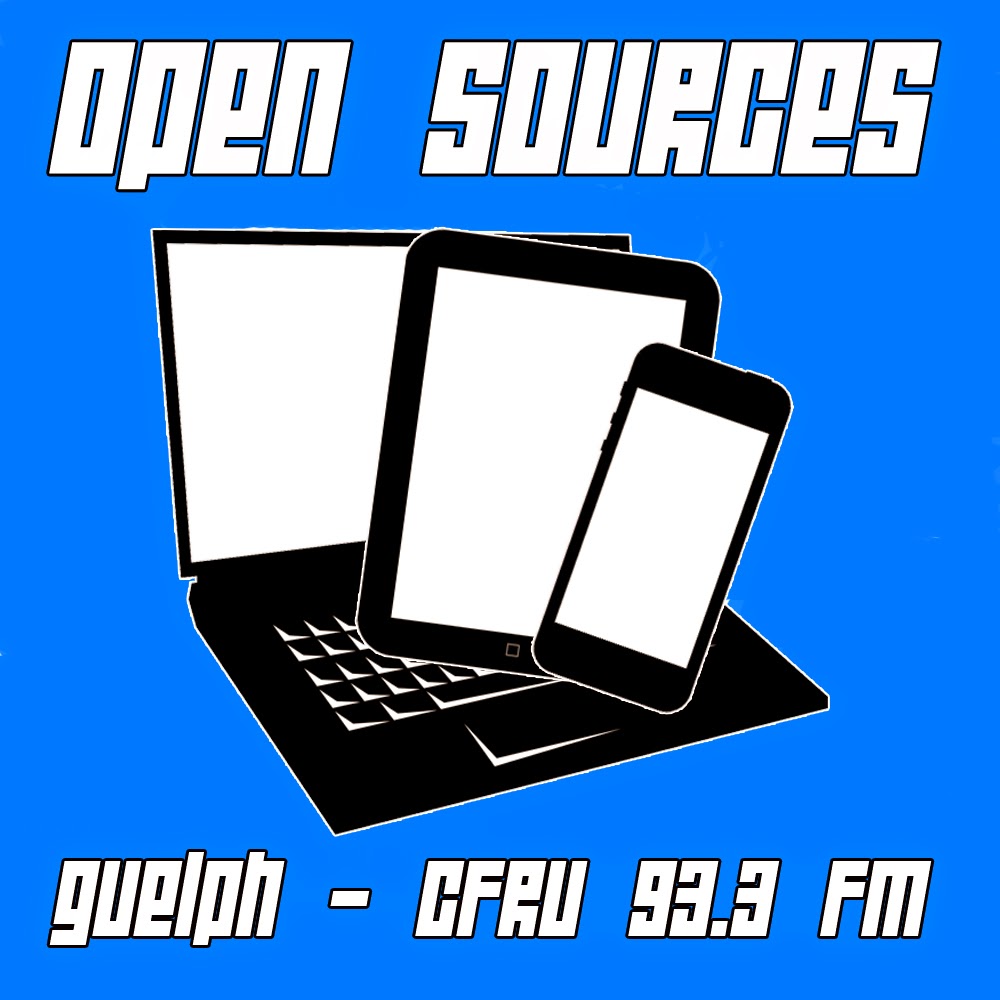If you haven't heard of James Gordon then welcome to Guelph. After two turns at running in provincial politics, Gordon is now running for city council in Ward 2. Amongst his accolades, Gordon was the first President of the Guelph Civic League, the first Artistic Director of the Hillside Festival, a co-founder of the Wellington Water Watchers, the Founding Chair of the Family Mental Health Network, and winner of Mayor’s Award in 2008 for community service. Above and beyond that, he's well-known for his contributions to the arts and his career as a singer-songwriter. And now, he's the first respondent of Guelph Politico's 2014 Municipal Election candidate questionnaire.
1) Why did you decide to run for city council?
I have lived in Ward Two for 15 years and I have worked to help Guelph realize its amazing potential all my adult life.
As a candidate for provincial office, I knocked on the doors of residents who shared their concerns for our city. Many of them expressed the hope that I might help them to address those concerns.
I seem to have acquired the nickname “Mr. Guelph” for the years I’ve worked to serve this community. As the founding president of the Guelph Civic League, I worked hard on social justice issues and on making sure our city government was accountable, transparent, accessible, democratic, and responsive to its citizens.
As the founding Artistic Director of the Hillside Festival, I worked to enliven our city’s cultural life, which has drawn many new families here, becoming a vital part of our economy and our identity.
As a downtown businessman, I learned the importance of small business to our economy, and of city leaders who will provide ways to encourage those businesses to establish and prosper here.
As the founding chair of the Family Mental Health Network, I worked to give voice to our citizens who have become marginalized by poverty and health disabilities; I believe it is crucial that they can thrive in our community.
As co-founder of the Wellington Water Watchers, I worked hard to protect our most precious resource, and to make sure we have a sustainable watershed and thriving river corridors. Serving in public office is an immense responsibility. This summer, I have been humbled by conversations with close friends and community leaders who expressed an eagerness to see what my approach and my experience would bring to a run for council. They believe that my track record as an advocate for local issues is a valuable asset.
I’ve visited homes in every part of Ward Two and I’ve run workshops for our children in every school in the Ward. It’s a fascinating microcosm of our city, from the historic older neighbourhoods along the Speed River corridor to the new booming suburbs in the North- East, to the areas that have experienced real poverty as our economy has lost so many jobs. Ward Two also has the largest population of seniors in the city, and I want to make sure that their lives feel rewarding, safe and affordable.
I am excited by the prospect of representing Ward Two. I would work on your behalf to create good jobs and to address our income inequality, our master growth plan, our cultural and local food sectors, our environment, our great potential in the innovation sector, our infrastructure and energy plan, and our quality of life in this great city.
City council is on the front line of change. That is where decisions get made at a grassroots level that can have a major impact on our daily lives as residents.
I want to give back to this community that has given so much to me. I want to work hard to help create a city that works, and there’s much work to do. I want to bring a passion and skill to that work in a way that would be non-partisan, progressive, inclusive, innovative, creative, visionary and effective!
2) What makes your ward unique to Guelph?
Ward 2 has the more seniors than any other Ward, with many senior’s homes and facilities. Addressing the needs of our aging population will have to be a priority for our incoming council around issues of safety, housing, accessibility, retail opportunities, and transit. Ward 2 also has a great deal of income inequity, with areas of extreme poverty and areas of wealth. If a noticeable income gap leaves a vulnerable section of our residents behind, we don’t thrive as a community.
3) Using a letter grade, how would you rank the performance of the current city council? Explain.
I’d give our council a B. Despite challenges, they have left us with a good credit rating, we’ve been named one of the most attractive cities in North America for drawing new businesses, and we have addressed many infrastructure projects that add to our sustainability. Why just a B then? Our employment rate is still dropping, our income gap between those thriving and those struggling is increasing. We can’t blame these statistics on our municipal government exclusively, but our council needs to make these issues a great priority in the coming four years.
4) Some people say that Guelph is over-taxed, others believe that our taxes are inline with a community our size; where do you stand on taxation in Guelph?
It’s not a ‘belief’ that our taxes are inline with a community our size, it’s a fact! Our property taxes almost exactly match the provincial average. My stand on taxation is this: The lower our taxes, the lower our quality of life. We must learn how to spend your tax dollars wisely and effectively. When we struggle with paying our taxes, it is more productive to bring better jobs into Guelph, to raise our incomes rather than lowering our taxes. Austerity budgets, tax and wage freezes do not work. We do not want to over-spend. We want to “INVEST” in our children’s futures. Lowering taxes is a short term fix- it hampers the ability of our city to plan infrastructure improvements, to plan for the growth mandated by the Places To Grow Act. We need to take a long-term vision that keeps us sustainable and thriving. Our taxation system needs to be fair, and that means not leaning so heavily on homeowners and asking that developers and our large corporations pay their fair share.
5) Do you believe that Guelph has a spending problem? If yes, then please cite specific examples of areas and/or programs that you would cut to save money?
No. We have an Earning problem!
6) What’s the biggest priority for Guelph in terms of services needed? This could be something that’s provided by the government, ie: a library or rec centre, or it could be a commercial need, ie: a new grocery store in the east end.
Families in the south end need a gathering place to give them a sense of community, kids need a safe place to hang out, and we'll all benefit from less congestion when south end families don't have to drive across town for swimming lessons etc. Making our neighbourhoods more walkable will improve our quality of life and reduce the strain on our transit system. The east and North East still lack retail and recreation hubs in their neighbourhoods, and this needs to be a priority. The new downtown library seems to be very controversial, but it is essential to the success of the Baker Street Project. Without the library we won’t attract the colleges, the housing, and the retail that we need to stimulate the economy of our central core. Libraries seem to be criticized for being a needless ‘expense’, and yet other cities like Winnipeg and Cambridge have proven that this investment pays for itself quickly in the extra traffic it brings to the downtown. As someone who works in the cultural sector myself, it’s always frustrating to see cultural projects cut when budgets are tight, when statistics have shown that for every dollar invested in our arts, culture and recreation, we get two dollars back from people coming into the downtown core, frequenting the shops and restaurants, (thus stimulating jobs too), and giving our city the kind of reputation that draws innovative tax-paying businesses.
7) How would you propose to mend relations between the city and transit workers, and to improve the services of Guelph Transit?
There were mistakes made on both sides of the transit strike. We must learn from those mistakes and make sure we have proper bargaining rights entrenched into our city mandate. Our transit workers are not overpaid. Just like in industry, if they feel that they have good working conditions they will in return offer better service and commitment. I have long believed that an investment in enhancing our transit services, better serving our community especially our seniors, our students, and those marginalized by special needs and poverty, will pay for itself in increased use. This will improve our traffic congestion too.
8) What will you do to insure the best possible communication between yourself and your constituents if you’re elected to council?
I want to make sure that I am always accessible to constituents. I believe in a ‘bottom up’ style of leadership- listening and responding, being collaborative and inclusive in decision-making. I would like to hold regular ‘town-hall’ style meetings to share ideas and hear about concerns. If I am to be your voice on council, I have to be able to hear that voice!
9) Guelph is implementing online voting for the first time with this election, are you in favour of this development or against it? Explain.
I am in favour of online voting in that it should increase our woeful voter turnout. You have to presume that a good portion of the almost 70 % of us who chose NOT to vote in the last municipal election made that choice because getting to a polling station felt onerous. Online voting makes the process easy, accessible, and some say more fun. I DO have concerns based on recent experiences in the U.S. about the possibility of voter fraud. We need to make our system foolproof and I wonder if the online methods we are introducing are that!
10) What issue, aside from any previously mentioned in this questionnaire, do you think should be a priority and why?
I have two:
1. Jobs. Only 6 out of 10 employable Guelphites have jobs. We need to attract businesses to our city that can offer good jobs that will sustain families. Too many of our large employers offer just part-time or temporary jobs, and it is leading to growing income inequity an poverty.
If elected I will work to encourage growth in our innovation and green energy sectors.
2. The Dolime Quarry. This is an ecological disaster waiting to happen. Continued operations there have punctured the aquatard that protects our water supply. If elected I will move to close it. It puts our health, safety, and our economy at risk by being there.
11) How can local government be a force for good in the lives of the people of Guelph? Our local government, as I mentioned earlier, is on the “front line of change”. When the Mike Harris government downloaded so many responsibilities onto municipalities in a mean-spirited budget cut initiative, our city struggled to provide services without raising taxes to a level that alienated our citizens. By being accountable and transparent, by being inclusive and responsive, we can engage our citizens so that we are not left with an ‘us’ and ‘them’ mentality. We are in this together, and if it feels like that to voters, our government on any level will be seen as ‘a force of good’. When it is clear that our decisions are made with proper public consultation, and that those decisions are giving us the quality of life we can realize in this city, when we are environmentally sustainable, when we feel safe and enlivened by our cities many amenities, we’ll feel good as a community and we will trust that our leaders are contributing to that sense of well-being.
12) Where can voters get more information about you and your campaign?
- 519-766-6707
- info@jamesgordonward2.ca
- FB: jamesgordon4ward2
- web: jamesgordonward2.ca
- Twitter: @thatjamesgordon


















No comments:
Post a Comment